Find The Best Roof Inspectors On Roofyng.co.uk
Get A Thorough & Professional Roof Inspection
Roofyng.co.uk connects you with qualified and experienced roof inspectors across UK. Book your inspection today to ensure the integrity and safety of your roof.
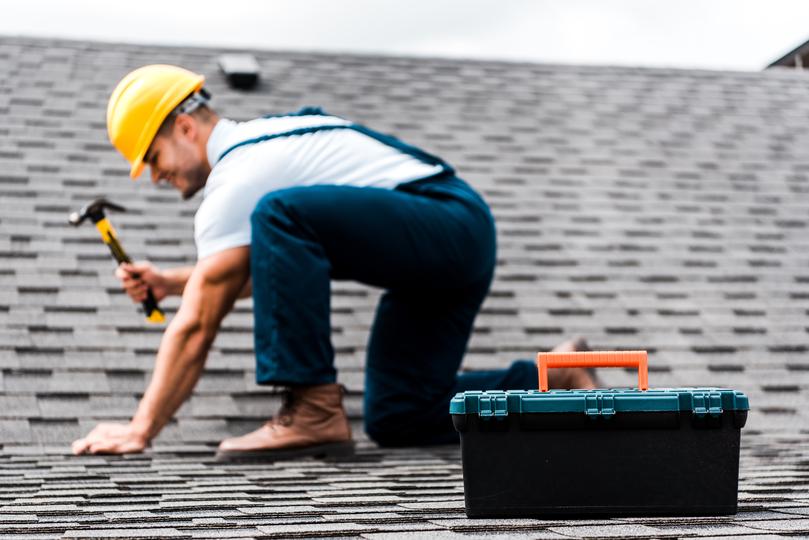
Discover Other Roofing Services
Roofyng.co.uk offers a comprehensive range of roofing services. Find roofers for new roof installation, roof repair, roof replacement and more.
Find trusted roofing companies near you. Get multiple quotes for roof installation, repair, and replacement services.
Get a new roof installed by experienced professionals. We offer a variety of roofing materials and styles to suit your needs and budget.
Comprehensive roof repair services for all types of roofs. We fix leaks, damage, and other roofing issues to keep your property protected.
Complete roof replacement services for residential and commercial buildings. We remove your old roof and install a new roof with the material of your choice.
Specialized roofing services for commercial buildings. We handle installation, repair, and replacement for all types of commercial roofs.
Expert shingle roofers for your home. We specialize in asphalt shingle installation, repair, and replacement, offering a range of shingle types and colors.
24/7 emergency roof repair services for urgent situations. We respond quickly to storm damage, leaks, and other roofing emergencies to protect your property.
Fast and reliable roof leak repair services. We identify and fix the source of leaks to protect your property from water damage.
Expert tile roofing services for your home. We specialize in the installation, repair, and replacement of tile roofs, offering a variety of styles and colors.
Durable and stylish steel roof installation services. We offer a variety of metal roofing options, including standing seam and corrugated metal.
Expert shingle roof repair services for your home. We fix leaks, damaged or missing shingles, and other common shingle roofing problems.
Affordable and efficient shingle roof replacement services. We remove your old shingles and install a new, durable asphalt shingle roof.
Expert flat roof installation and repair services. We work with a variety of flat roofing systems, including TPO, EPDM, and modified bitumen.
Sustainable and eco-friendly green roof installation and maintenance. We create beautiful living roofs that benefit the environment and your property.
Specialized roofing companies experienced in hail damage repair and replacement. We work with insurance companies to get your roof restored after a hailstorm.
Professional metal roof repair services for residential and commercial properties. We fix leaks, dents, rust, and other metal roof issues.
Long-lasting and energy-efficient metal roof replacement services. We install durable steel or metal roofs that enhance your property's value and curb appeal.
Professional roof flashing repair to prevent leaks and water damage. We repair and seal flashing around chimneys, skylights, vents, and other roof penetrations.
Professional roof waterproofing services to protect your property from leaks and water damage. We apply high-quality sealants, membranes, and coatings to ensure
Durable and long-lasting rubber roof (EPDM) installation and repair services. Ideal for flat or low-slope roofs on residential and commercial buildings.
Expert TPO roofing services for flat and low-slope roofs. We offer high-quality TPO roof installation, repair, and maintenance for residential and commercial pro
Specialized tile roof repair services. We fix leaks, replace cracked or broken tiles, and provide other tile roof maintenance to keep your roof in excellent cond
Specialized roofing contractors for industrial facilities. We handle large-scale roof installations, repairs, and replacements for factories, warehouses, and oth
Beautiful and durable tile roof replacement services. We install high-quality clay or concrete tile roofs, offering a classic and elegant look for your home.
Reliable flat roof replacement services for residential and commercial properties. We specialize in installing durable and weather-resistant flat roofing systems
24/7 emergency roof tarping services to protect your property from further damage. We provide temporary roof covers after storms or other incidents.
Expert chimney flashing repair services to prevent leaks and water damage. We ensure your chimney is properly sealed to protect your home.
Improve your home's energy efficiency and comfort with our roof insulation services. We install and replace attic insulation to reduce energy costs and keep your
Beautiful and durable cedar shake roofing services. We specialize in cedar shake installation, repair, and replacement, providing a classic and elegant look for
Finding A Qualified Roof Inspector Is Easy With Roofyng.co.uk
We simplify the process of finding and booking a certified roof inspector in the UK.

- Tell Us About Your Inspection Needs
- Specify your roof type, the reason for inspection (insurance, pre-purchase, maintenance, etc.), and your location.
- We Connect You With Local Inspectors
- We'll match you with reputable and qualified roof inspectors in your area who meet your specific requirements.
- Choose and Book Your Inspection
- Review inspector profiles, compare services and pricing, and book your inspection directly through our platform.
- Get a Detailed Report
- Receive a comprehensive roof inspection report outlining the condition of your roof, any identified issues, and recommendations for repairs or maintenance.
Why Choose Roofyng.co.uk to Find a Roof Inspector?
The smarter way to find Roof Inspection suppliers
Roofyng.co.uk is your trusted source for connecting with certified and experienced roof inspectors in the UK. We understand that a thorough roof inspection is crucial for making informed decisions about your roof's maintenance, repair, or replacement. Here's why you should choose Roofyng.co.uk to find your next roof inspector: We take the stress out of finding the right roofing services. Here's how:

- Vetted and Qualified Professionals
- We meticulously vet all roof inspectors in our directory, ensuring they have the necessary licenses, certifications, and insurance. You can trust that you're connecting with qualified professionals with the expertise to assess your roof's condition accurately.
- Comprehensive Inspections
- Our listed roof inspectors conduct thorough inspections covering all key aspects of your roof, including:
- Roof Covering: Shingles, tiles, metal panels, or membrane for signs of damage, wear, and tear, or missing components.
- Flashing: Around chimneys, vents, skylights, and other penetrations for proper installation and any signs of leaks or damage.
- Gutters and Downspouts: For proper attachment, functionality, and any clogs or damage.
- Structure: The roof deck, rafters, and supports for signs of sagging, rot, or structural damage.
- Ventilation: Attic ventilation for proper airflow and moisture control.
- Insulation: Adequacy and condition of attic insulation.
- Independent and Unbiased
- Our roof inspectors are independent professionals, not affiliated with any specific roofing company. This ensures unbiased and objective assessments, providing you with an accurate representation of your roof's condition without any sales pressure.
- Competitive Pricing
- Roof inspection costs can vary, and we believe in transparency. Our platform allows you to compare prices from multiple roof inspectors in your area, ensuring you find a fair and competitive rate for your inspection.
- Easy Booking & Scheduling
- Finding and booking a roof inspector through Roofyng.co.uk is simple and convenient. Browse inspector profiles, compare services, and schedule your inspection directly through our platform. We streamline the process, saving you time and effort.
- Peace of Mind
- A professional roof inspection gives you peace of mind knowing you have a comprehensive understanding of your roof's condition. This allows you to make informed decisions about maintenance, repairs, or replacement, potentially saving you from costly surprises in the future.
Ensure The Integrity of Your Commercial Roof
Find Commercial Roof Inspectors
Regular inspections are crucial for maintaining the integrity and safety of commercial roofs. Roofyng.co.uk connects businesses with qualified commercial roof inspectors experienced in evaluating various roofing systems, including flat roofs, metal roofs, and more. They provide detailed reports outlining the roof's condition, identifying potential issues, and offering recommendations for repairs or maintenance, ensuring the longevity and optimal performance of your commercial roof.
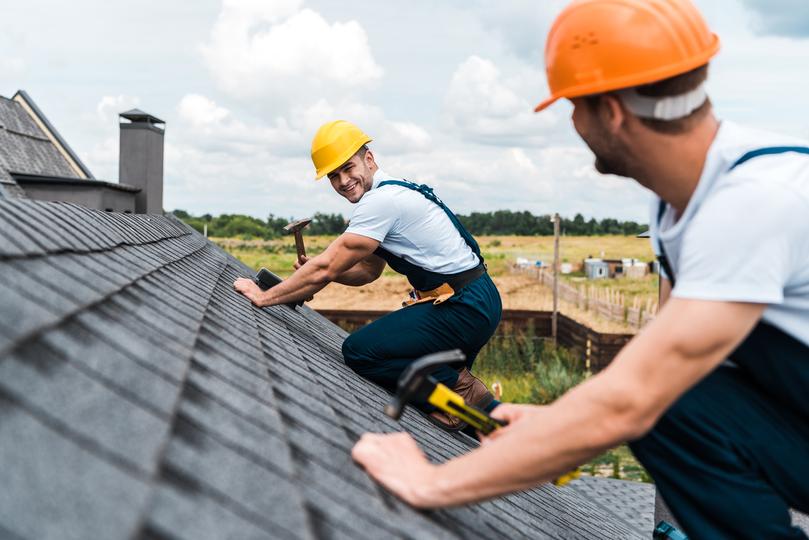
Find trusted roofing companies near you. Get multiple quotes for roof installation, repair, and replacement services.

Get a new roof installed by experienced professionals. We offer a variety of roofing materials and styles to suit your needs and budget.
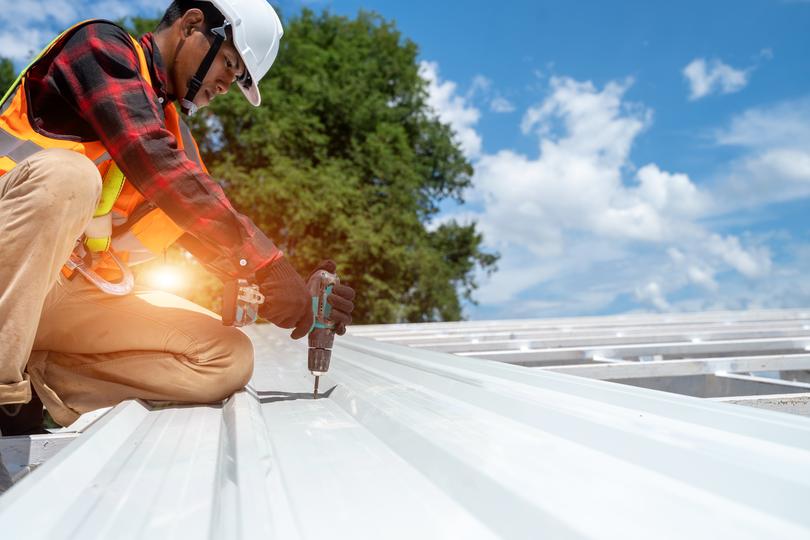
Comprehensive roof repair services for all types of roofs. We fix leaks, damage, and other roofing issues to keep your property protected.

Complete roof replacement services for residential and commercial buildings. We remove your old roof and install a new roof with the material of your choice.
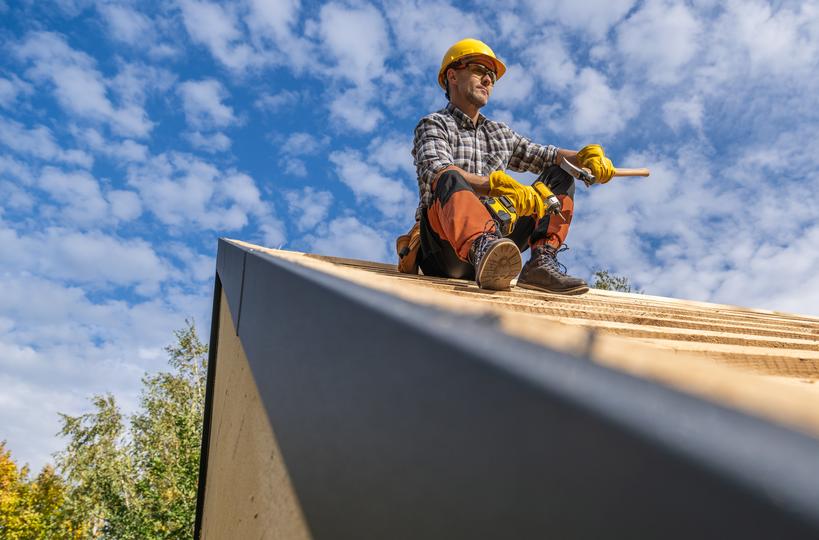
Specialized roofing services for commercial buildings. We handle installation, repair, and replacement for all types of commercial roofs.
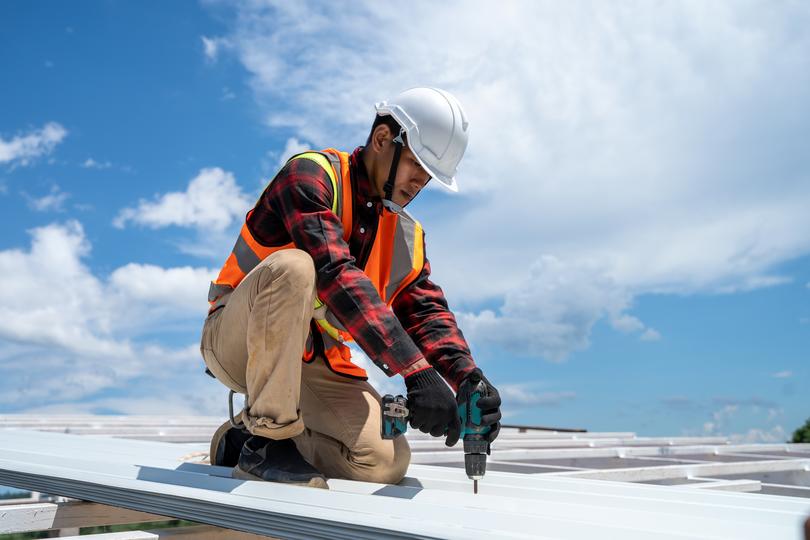
24/7 emergency roof repair services for urgent situations. We respond quickly to storm damage, leaks, and other roofing emergencies to protect your property.

Fast and reliable roof leak repair services. We identify and fix the source of leaks to protect your property from water damage.
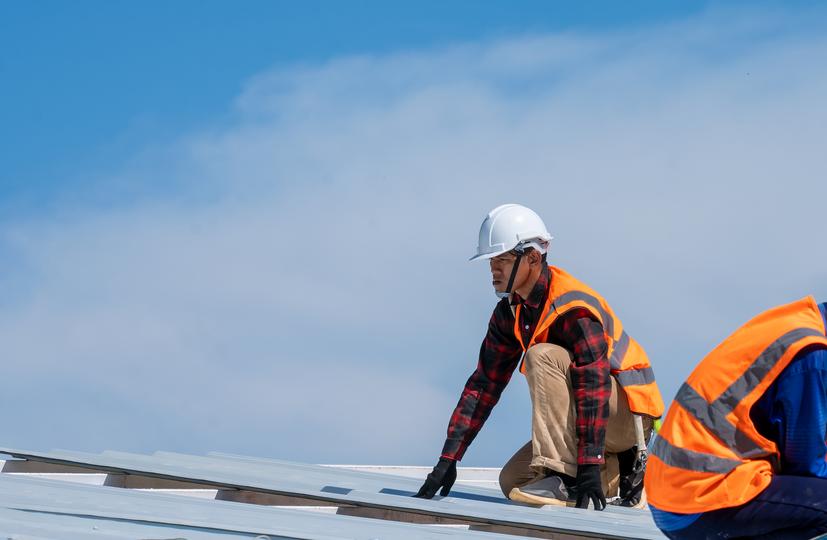
Durable and stylish steel roof installation services. We offer a variety of metal roofing options, including standing seam and corrugated metal.

Expert flat roof installation and repair services. We work with a variety of flat roofing systems, including TPO, EPDM, and modified bitumen.

Sustainable and eco-friendly green roof installation and maintenance. We create beautiful living roofs that benefit the environment and your property.
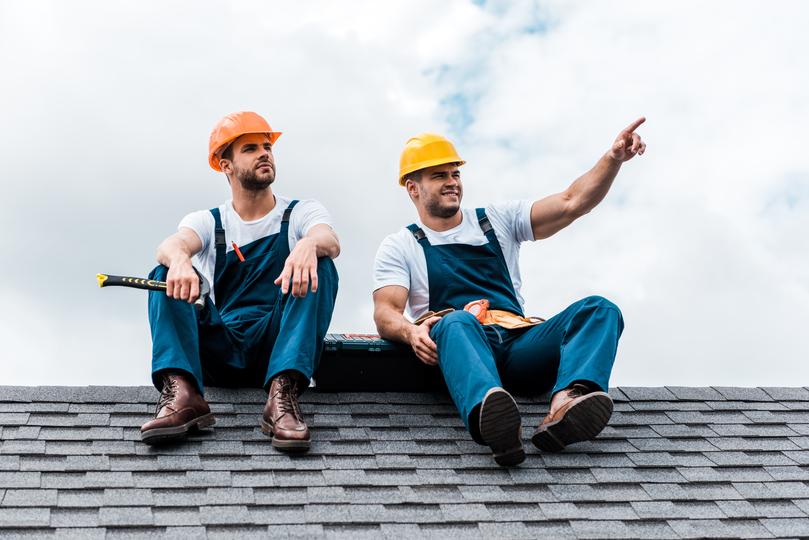
Specialized roofing companies experienced in hail damage repair and replacement. We work with insurance companies to get your roof restored after a hailstorm.
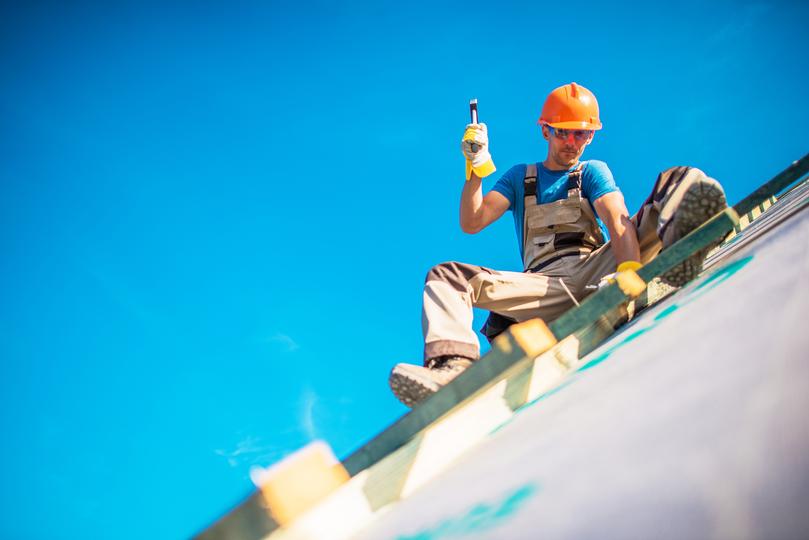
Professional metal roof repair services for residential and commercial properties. We fix leaks, dents, rust, and other metal roof issues.

Certified roof inspectors provide thorough roof inspections for insurance claims, pre-purchase evaluations, and maintenance assessments.
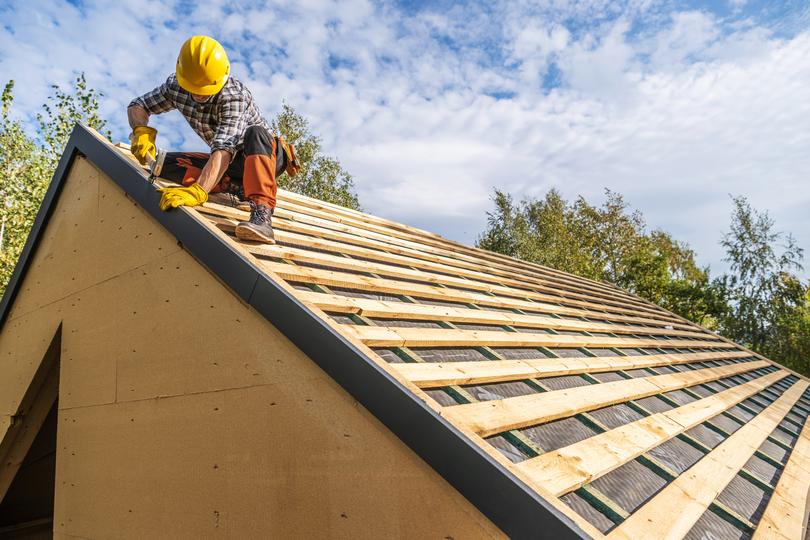
Long-lasting and energy-efficient metal roof replacement services. We install durable steel or metal roofs that enhance your property's value and curb appeal.
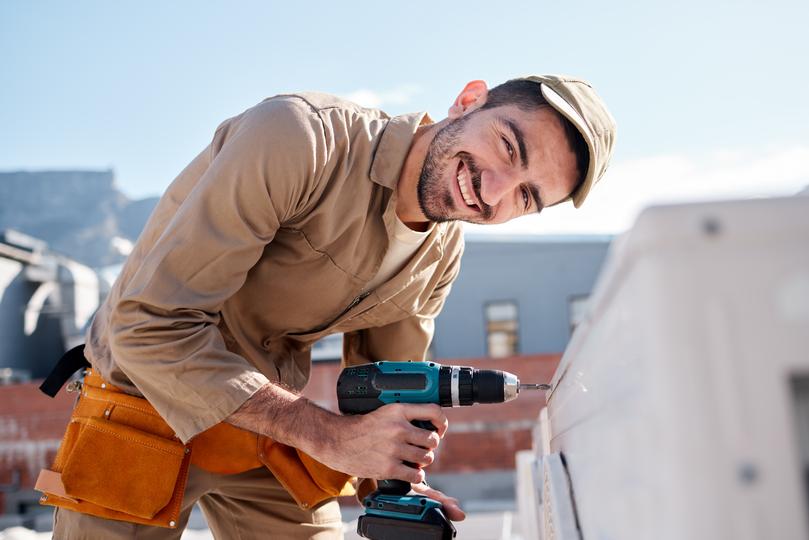
Professional roof flashing repair to prevent leaks and water damage. We repair and seal flashing around chimneys, skylights, vents, and other roof penetrations.
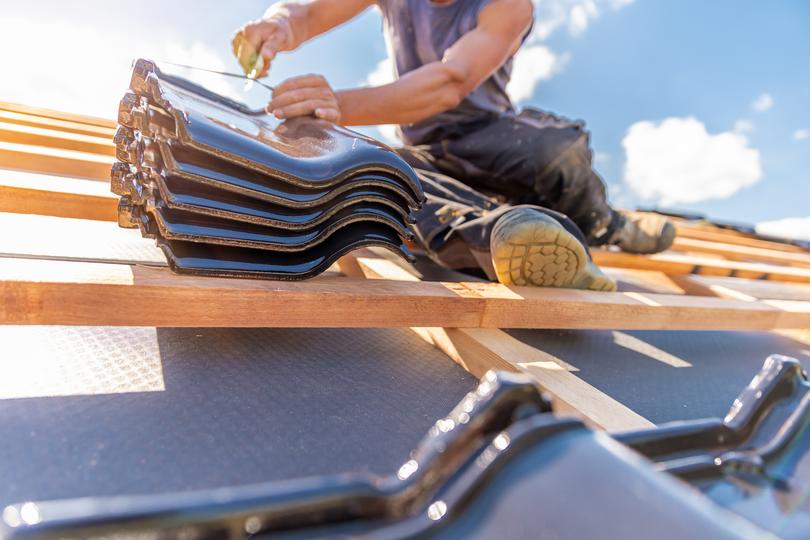
Professional roof waterproofing services to protect your property from leaks and water damage. We apply high-quality sealants, membranes, and coatings to ensure
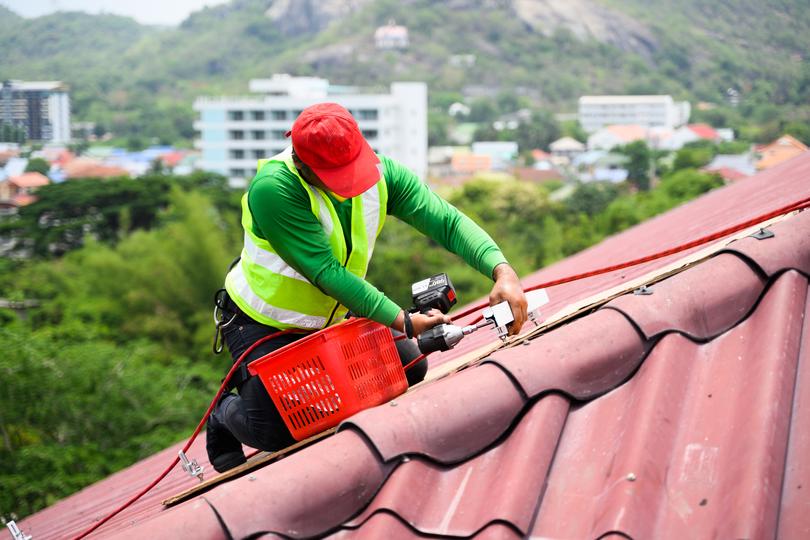
Durable and long-lasting rubber roof (EPDM) installation and repair services. Ideal for flat or low-slope roofs on residential and commercial buildings.

Expert TPO roofing services for flat and low-slope roofs. We offer high-quality TPO roof installation, repair, and maintenance for residential and commercial pro

Specialized roofing contractors for industrial facilities. We handle large-scale roof installations, repairs, and replacements for factories, warehouses, and oth

Reliable flat roof replacement services for residential and commercial properties. We specialize in installing durable and weather-resistant flat roofing systems

24/7 emergency roof tarping services to protect your property from further damage. We provide temporary roof covers after storms or other incidents.
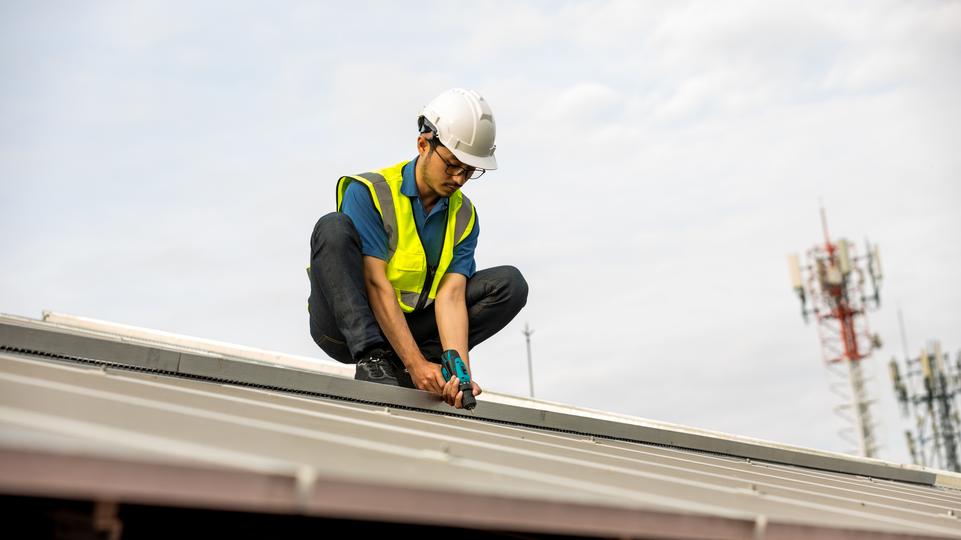
Improve your home's energy efficiency and comfort with our roof insulation services. We install and replace attic insulation to reduce energy costs and keep your
Protect Your Home with a Thorough Inspection
Find Residential Roof Inspectors
Roofyng.co.uk helps homeowners find trusted residential roof inspectors who provide comprehensive assessments of your roof's condition. Whether you're buying a new home, selling your current home, or simply want to stay ahead of potential problems, our vetted inspectors can provide valuable insights and recommendations for maintaining a safe and reliable roof.

Find trusted roofing companies near you. Get multiple quotes for roof installation, repair, and replacement services.

Get a new roof installed by experienced professionals. We offer a variety of roofing materials and styles to suit your needs and budget.

Comprehensive roof repair services for all types of roofs. We fix leaks, damage, and other roofing issues to keep your property protected.

Complete roof replacement services for residential and commercial buildings. We remove your old roof and install a new roof with the material of your choice.

Expert shingle roofers for your home. We specialize in asphalt shingle installation, repair, and replacement, offering a range of shingle types and colors.

24/7 emergency roof repair services for urgent situations. We respond quickly to storm damage, leaks, and other roofing emergencies to protect your property.

Fast and reliable roof leak repair services. We identify and fix the source of leaks to protect your property from water damage.

Expert tile roofing services for your home. We specialize in the installation, repair, and replacement of tile roofs, offering a variety of styles and colors.

Durable and stylish steel roof installation services. We offer a variety of metal roofing options, including standing seam and corrugated metal.
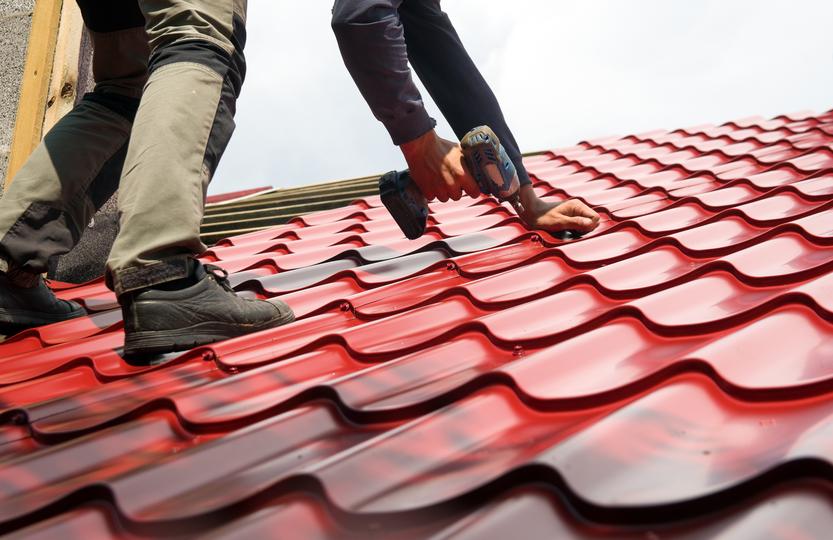
Expert shingle roof repair services for your home. We fix leaks, damaged or missing shingles, and other common shingle roofing problems.

Affordable and efficient shingle roof replacement services. We remove your old shingles and install a new, durable asphalt shingle roof.

Expert flat roof installation and repair services. We work with a variety of flat roofing systems, including TPO, EPDM, and modified bitumen.

Sustainable and eco-friendly green roof installation and maintenance. We create beautiful living roofs that benefit the environment and your property.

Specialized roofing companies experienced in hail damage repair and replacement. We work with insurance companies to get your roof restored after a hailstorm.

Professional metal roof repair services for residential and commercial properties. We fix leaks, dents, rust, and other metal roof issues.

Certified roof inspectors provide thorough roof inspections for insurance claims, pre-purchase evaluations, and maintenance assessments.

Long-lasting and energy-efficient metal roof replacement services. We install durable steel or metal roofs that enhance your property's value and curb appeal.

Professional roof flashing repair to prevent leaks and water damage. We repair and seal flashing around chimneys, skylights, vents, and other roof penetrations.

Professional roof waterproofing services to protect your property from leaks and water damage. We apply high-quality sealants, membranes, and coatings to ensure

Durable and long-lasting rubber roof (EPDM) installation and repair services. Ideal for flat or low-slope roofs on residential and commercial buildings.

Expert TPO roofing services for flat and low-slope roofs. We offer high-quality TPO roof installation, repair, and maintenance for residential and commercial pro

Specialized tile roof repair services. We fix leaks, replace cracked or broken tiles, and provide other tile roof maintenance to keep your roof in excellent cond
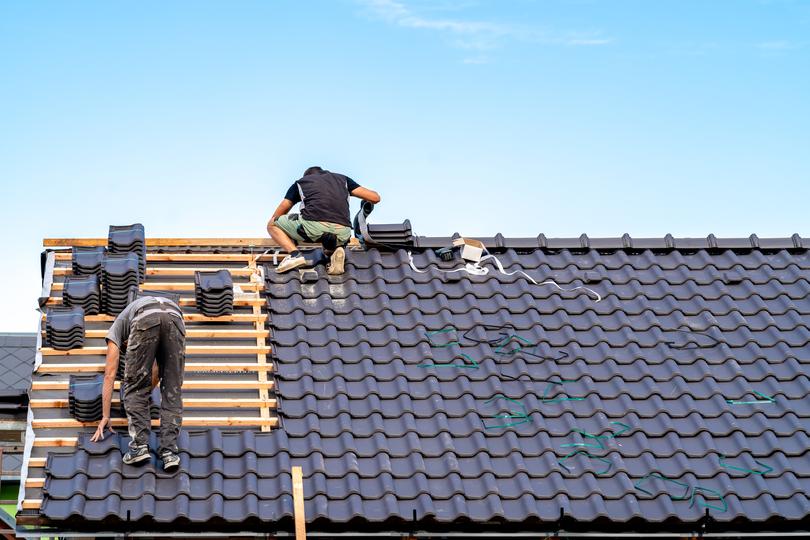
Beautiful and durable tile roof replacement services. We install high-quality clay or concrete tile roofs, offering a classic and elegant look for your home.

Reliable flat roof replacement services for residential and commercial properties. We specialize in installing durable and weather-resistant flat roofing systems

24/7 emergency roof tarping services to protect your property from further damage. We provide temporary roof covers after storms or other incidents.

Expert chimney flashing repair services to prevent leaks and water damage. We ensure your chimney is properly sealed to protect your home.

Improve your home's energy efficiency and comfort with our roof insulation services. We install and replace attic insulation to reduce energy costs and keep your

Beautiful and durable cedar shake roofing services. We specialize in cedar shake installation, repair, and replacement, providing a classic and elegant look for
Ready to Book Your Roof Inspection?
Find The Best Roof Inspectors on Roofyng.co.uk!
Get started today and schedule an inspection with a qualified and experienced roof inspector in your area.
Roof Inspection Glossary
Roof Inspection
Roof Inspector
Roof Covering
Shingles
Tiles
Metal Panels
Membrane
Flashing
Underlayment
Roof Deck
Roof Structure
Roof Pitch
Roof Valley
Roof Ridge
Gutters and Downspouts
Roof Inspection FAQs
What is a roof inspection?
How much does a roof inspection cost in the UK?
Why do I need a roof inspection?
- Buying a Home: A pre-purchase inspection can reveal potential roof problems before closing the deal, allowing you to negotiate repairs or adjust your offer accordingly.
- Selling a Home: An inspection before selling your home can identify any issues that could deter potential buyers or lead to price reductions.
- Insurance Purposes: Some insurance companies require roof inspections to assess the roof's condition and determine coverage eligibility or premium rates.
- Maintenance: Regular inspections help detect minor issues before they escalate into costly repairs, extending your roof's lifespan.
- Storm Damage Assessment: After a hailstorm, windstorm, or other severe weather event, an inspection is crucial to assess the damage and determine the necessary repairs.
How often should I get my roof inspected?
What does a roof inspector look for?
- Roof Covering: The inspector will examine shingles, tiles, metal panels, or the membrane for signs of damage, such as cracks, curling, missing pieces, blisters, or granule loss. They'll also check for proper installation and assess the overall condition of the roof covering.
- Flashing: The inspector will inspect flashing around chimneys, vents, skylights, valleys, and other roof penetrations to ensure it's properly installed and sealed. They'll look for signs of rust, corrosion, or gaps that could lead to leaks.
- Gutters and Downspouts: The inspector will check the gutters and downspouts for proper attachment, cleanliness, and signs of damage or clogs. They'll ensure the drainage system is functioning correctly.
- Roof Structure: The inspector will examine the roof deck, rafters, and supports for any signs of sagging, rot, or structural damage. They'll also check for proper ventilation and insulation.
- Attic: The inspector may also access the attic to examine the underside of the roof deck, insulation, and ventilation system for any signs of leaks, moisture, or mold growth.
How do I choose a good roof inspector?
- Qualifications: Look for certified inspectors with relevant experience. Some certifications to look for include Registered Roof Consultant (RRC), Registered Roof Observer (RRO), or certifications from reputable roofing associations.
- Licensing and Insurance: Verify that the inspector is licensed to operate in your area and carries professional liability insurance to protect you in case of errors or omissions during the inspection.
- Reputation: Check online reviews and ratings from previous clients to gauge their reputation for thoroughness, accuracy, and professionalism.
- Independence: Choose an inspector who is independent and unbiased, not affiliated with any specific roofing company. This ensures you receive an objective assessment.
- Detailed Reports: Inquire about the type of report they provide. A comprehensive report should include detailed findings, photos, recommendations, and an estimated remaining lifespan of the roof.
What should I do if the roof inspector finds problems?
Do I need to be present during the roof inspection?
- Ask questions directly to the inspector and get immediate clarification on any concerns you have.
- Point out specific areas of concern or past issues you've experienced with your roof.
- Gain a better understanding of the inspection process and see the condition of your roof firsthand.
What is the difference between a roof inspection and a roof certification?
Roof Inspection: A visual assessment of the roof's current condition, identifying any existing problems.
Roof Certification: A professional opinion on the roof's expected lifespan, usually for a specific period (e.g., 2-5 years). It may involve a more detailed inspection and is often required for insurance or real estate transactions.
Should I get a roof inspection before buying a house?
What is a four-point inspection?
- Roof
- Electrical System
- Plumbing System
- HVAC (Heating, Ventilation, and Air Conditioning) System
How do I prepare my roof for an inspection?
- Clear Access: Remove any obstructions from your roof, such as debris, branches, or equipment, to allow the inspector easy access.
- Unlock Gates: Unlock any gates or access points leading to your roof or attic.
- Trim Trees: Trim any overhanging branches that might obstruct the inspector's view of the roof.
- Inform About Pets: Let the inspector know if you have any pets, especially if they are not confined to a specific area.
- Provide Background Information: If you have any known issues or previous repairs on your roof, inform the inspector about them.
What is a wind mitigation inspection?
- Roof shape
- Roof covering
- Roof deck attachment
- Opening protection (windows, doors)
Should I get a roof inspection after a storm?
- Loose or missing shingles or tiles.
- Damaged or lifted flashing.
- Dents in metal roofing.
- Cracks in the roof deck or leaks in the attic.
What are the different levels of roof inspections?
- Basic Inspection: A visual inspection of the roof's accessible areas, typically from the ground or a ladder, checking for obvious signs of damage or wear and tear.
- Standard Inspection: A more thorough inspection, including visual examination of the entire roof surface, flashing, gutters, and a limited inspection of the attic.
- Comprehensive Inspection: The most detailed inspection, including a thorough examination of all roof components, the attic, and potentially destructive testing of materials.
What is a drone roof inspection?
- Assess large or hard-to-reach areas safely and efficiently.
- Identify damage that might not be visible from the ground.
- Provide a comprehensive visual record of the roof's condition.
How long does a roof inspection take?
How do I get a copy of my roof inspection report?
What is the difference between a roofer and a roof inspector?
Roofer: A skilled tradesperson who installs, repairs, or replaces roofs. They work hands-on with roofing materials and tools.
Roof Inspector: A qualified professional who assesses the condition of a roof. They don't perform repairs but provide a detailed report outlining findings and recommendations.
What is a roof certification?
Can a roof inspector also do repairs?
What should I do if I disagree with the roof inspector's findings?
- Discuss Your Concerns: First, communicate your concerns directly with the inspector. Ask for clarification on their findings and recommendations. Provide any relevant information you have about the roof's history or maintenance.
- Seek a Second Opinion: If your concerns aren't resolved, consider getting a second opinion from another qualified roof inspector.
- Document Everything: Keep a record of all communication with the inspector, including emails, phone calls, and the inspection report. This documentation will be helpful if you need to dispute the findings later.
What is the best way to find a reputable roof inspector online?
- Use Reputable Online Directories: Look for directories specializing in roofing services that feature vetted and certified inspectors, like Roofyng.co.uk.
- Check Professional Associations: Consult websites of national or local roofing associations for listings of certified inspectors.
- Read Reviews: Look for inspectors with positive reviews and testimonials from previous clients.
- Verify Credentials: Ensure the inspector has the necessary licenses, certifications, and insurance.
How do I schedule a roof inspection with Roofyng.co.uk?
What is a roof inspection?
How much does a roof inspection cost in the UK?
Why do I need a roof inspection?
- Buying a Home: A pre-purchase inspection can reveal potential roof problems before closing the deal, allowing you to negotiate repairs or adjust your offer accordingly.
- Selling a Home: An inspection before selling your home can identify any issues that could deter potential buyers or lead to price reductions.
- Insurance Purposes: Some insurance companies require roof inspections to assess the roof's condition and determine coverage eligibility or premium rates.
- Maintenance: Regular inspections help detect minor issues before they escalate into costly repairs, extending your roof's lifespan.
- Storm Damage Assessment: After a hailstorm, windstorm, or other severe weather event, an inspection is crucial to assess the damage and determine the necessary repairs.
How often should I get my roof inspected?
What does a roof inspector look for?
- Roof Covering: The inspector will examine shingles, tiles, metal panels, or the membrane for signs of damage, such as cracks, curling, missing pieces, blisters, or granule loss. They'll also check for proper installation and assess the overall condition of the roof covering.
- Flashing: The inspector will inspect flashing around chimneys, vents, skylights, valleys, and other roof penetrations to ensure it's properly installed and sealed. They'll look for signs of rust, corrosion, or gaps that could lead to leaks.
- Gutters and Downspouts: The inspector will check the gutters and downspouts for proper attachment, cleanliness, and signs of damage or clogs. They'll ensure the drainage system is functioning correctly.
- Roof Structure: The inspector will examine the roof deck, rafters, and supports for any signs of sagging, rot, or structural damage. They'll also check for proper ventilation and insulation.
- Attic: The inspector may also access the attic to examine the underside of the roof deck, insulation, and ventilation system for any signs of leaks, moisture, or mold growth.
How do I choose a good roof inspector?
- Qualifications: Look for certified inspectors with relevant experience. Some certifications to look for include Registered Roof Consultant (RRC), Registered Roof Observer (RRO), or certifications from reputable roofing associations.
- Licensing and Insurance: Verify that the inspector is licensed to operate in your area and carries professional liability insurance to protect you in case of errors or omissions during the inspection.
- Reputation: Check online reviews and ratings from previous clients to gauge their reputation for thoroughness, accuracy, and professionalism.
- Independence: Choose an inspector who is independent and unbiased, not affiliated with any specific roofing company. This ensures you receive an objective assessment.
- Detailed Reports: Inquire about the type of report they provide. A comprehensive report should include detailed findings, photos, recommendations, and an estimated remaining lifespan of the roof.
What should I do if the roof inspector finds problems?
Do I need to be present during the roof inspection?
- Ask questions directly to the inspector and get immediate clarification on any concerns you have.
- Point out specific areas of concern or past issues you've experienced with your roof.
- Gain a better understanding of the inspection process and see the condition of your roof firsthand.
What is the difference between a roof inspection and a roof certification?
Roof Inspection: A visual assessment of the roof's current condition, identifying any existing problems.
Roof Certification: A professional opinion on the roof's expected lifespan, usually for a specific period (e.g., 2-5 years). It may involve a more detailed inspection and is often required for insurance or real estate transactions.
Should I get a roof inspection before buying a house?
What is a four-point inspection?
- Roof
- Electrical System
- Plumbing System
- HVAC (Heating, Ventilation, and Air Conditioning) System
How do I prepare my roof for an inspection?
- Clear Access: Remove any obstructions from your roof, such as debris, branches, or equipment, to allow the inspector easy access.
- Unlock Gates: Unlock any gates or access points leading to your roof or attic.
- Trim Trees: Trim any overhanging branches that might obstruct the inspector's view of the roof.
- Inform About Pets: Let the inspector know if you have any pets, especially if they are not confined to a specific area.
- Provide Background Information: If you have any known issues or previous repairs on your roof, inform the inspector about them.
What is a wind mitigation inspection?
- Roof shape
- Roof covering
- Roof deck attachment
- Opening protection (windows, doors)
Should I get a roof inspection after a storm?
- Loose or missing shingles or tiles.
- Damaged or lifted flashing.
- Dents in metal roofing.
- Cracks in the roof deck or leaks in the attic.
What are the different levels of roof inspections?
- Basic Inspection: A visual inspection of the roof's accessible areas, typically from the ground or a ladder, checking for obvious signs of damage or wear and tear.
- Standard Inspection: A more thorough inspection, including visual examination of the entire roof surface, flashing, gutters, and a limited inspection of the attic.
- Comprehensive Inspection: The most detailed inspection, including a thorough examination of all roof components, the attic, and potentially destructive testing of materials.
What is a drone roof inspection?
- Assess large or hard-to-reach areas safely and efficiently.
- Identify damage that might not be visible from the ground.
- Provide a comprehensive visual record of the roof's condition.
How long does a roof inspection take?
How do I get a copy of my roof inspection report?
What is the difference between a roofer and a roof inspector?
Roofer: A skilled tradesperson who installs, repairs, or replaces roofs. They work hands-on with roofing materials and tools.
Roof Inspector: A qualified professional who assesses the condition of a roof. They don't perform repairs but provide a detailed report outlining findings and recommendations.
What is a roof certification?
Can a roof inspector also do repairs?
What should I do if I disagree with the roof inspector's findings?
- Discuss Your Concerns: First, communicate your concerns directly with the inspector. Ask for clarification on their findings and recommendations. Provide any relevant information you have about the roof's history or maintenance.
- Seek a Second Opinion: If your concerns aren't resolved, consider getting a second opinion from another qualified roof inspector.
- Document Everything: Keep a record of all communication with the inspector, including emails, phone calls, and the inspection report. This documentation will be helpful if you need to dispute the findings later.
What is the best way to find a reputable roof inspector online?
- Use Reputable Online Directories: Look for directories specializing in roofing services that feature vetted and certified inspectors, like Roofyng.co.uk.
- Check Professional Associations: Consult websites of national or local roofing associations for listings of certified inspectors.
- Read Reviews: Look for inspectors with positive reviews and testimonials from previous clients.
- Verify Credentials: Ensure the inspector has the necessary licenses, certifications, and insurance.